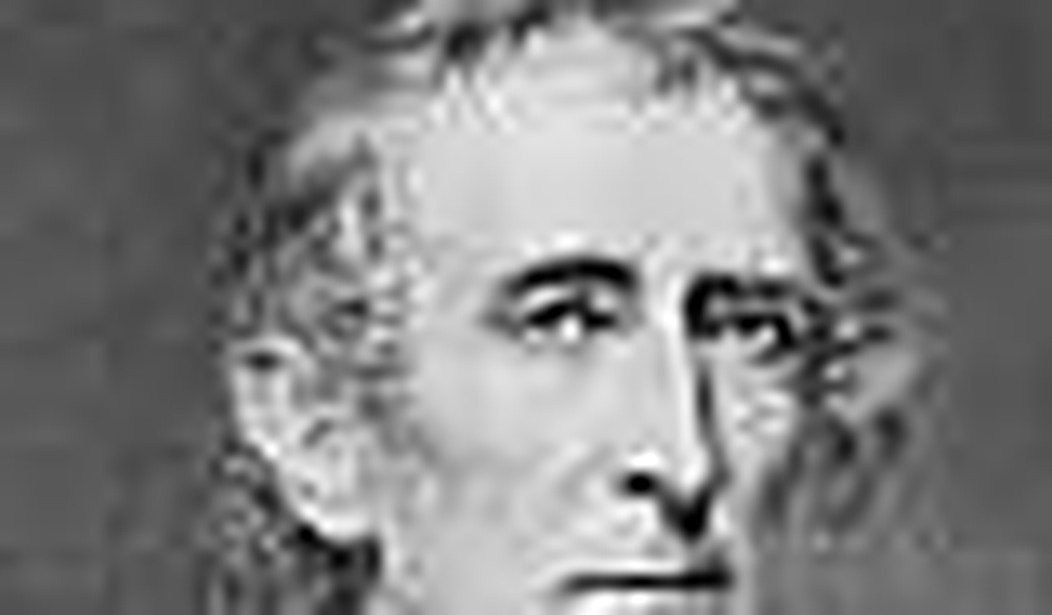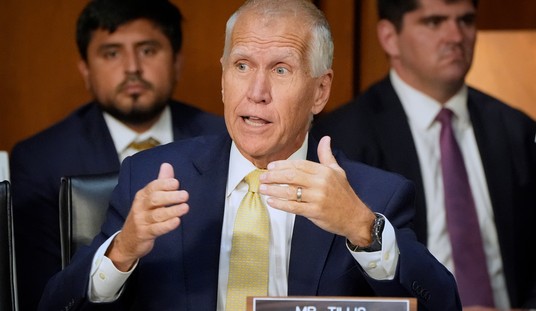With President Obama’s admission of “screwing up” after the withdrawal of Tom Daschle as potential secretary of Health and Human Services, the new chief executive is quickly approaching a record of dubious distinction. Over the storied history of our nation, the failure of presidential cabinet appointees to take their seats has been rare and generally far less contentious than those of the current era. (For purposes of mathematical accuracy, we shall omit the near simultaneous departure of Nancy Killefer, as she was not technically destined for the cabinet before “tax issues” tanked her advancement.) To place Obama’s selections in context, a brief look at the Congressional record is in order.
From the founding of our nation through the tenure of George W. Bush, a grand total of twenty cabinet nominees have departed the stage without serving in their intended office. Nine were rejected by the Senate and eleven withdrew of their own accord. It took until 1970 for that number to reach 14, with the remaining six taking place since Lyndon Johnson was in office.
Previous failures strike me as more compelling than the current crop. Be they sinister figures or innocent victims of circumstance, they leap off the pages of history as engaging actors in the tale of America. Their stories stand in sharp contrast to the mundane and tawdry tax cheats, shadowy influence peddlers, and pay-to-play artists we are saddled with today.
Historical reasons for personal recusal ran the gamut from the mundane to the perfidious, beginning with the little-noted Lucius Stockton, selected as secretary of war under John Adams in 1801. Later, Andrew Johnson sought to seat Thomas Ewing for a third term in the War Department, but the Senate was outraged at Johnson’s firing of Edwin Stanton and refused to act on the proposal. Ewing left the field of battle in disgust.
Rejections by the Senate were slightly more rare, but generally failed to reach the levels of real or perceived malice and mendacity demonstrated by modern candidates. Roger Taney lost his confirmation battle for the position of secretary of the treasury for being a “stooped, sallow, cringing tool of Jacksonian power.” None of this, however, prevented him from becoming the fifth chief justice of the Supreme Court and soiling his legacy by penning the majority opinion in Dred Scott.
President John Tyler set the still extant record for advise and consent dismissals at four, doubling President Obama’s efforts to date. The historic high point of this achievement came in the form of Caleb Cushing, who was both nominated and denied by the Senate twice in a single day on March 3, 1843. Placed in historical context, however, the fault likely fell on neither Tyler nor Cushing. Tyler was widely regarded as the “accidental president” and had gained the enmity of his opponents, as well as his own party and even his staff.
This general disapproval of the Tyler administration was in evidence on three other occasions. These included the highly qualified David Henshaw, apparently rejected as secretary of the Navy for little reason beyond the fact that he was an outspoken supporter of Tyler.
Much later, Dwight D. Eisenhower fell victim to one of first modern confirmation battles of a truly partisan nature when he sought to place Lewis L. Strauss as the secretary of commerce. Strauss had been a tireless advocate of American superiority in the nuclear arms race but had accumulated many powerful enemies in the process. Congress managed to stall the appointment for nearly six months until the then-Senate majority leader Lyndon Johnson informed his Democratic colleagues that the Strauss affair was a “test of party loyalty.” The appointment failed on a 49-46 vote.
It is only in the modern era when the long knives have been drawn for presidential nominations with such regularity and occasionally deserved ferocity. George H.W. Bush’s attempts to seat John Tower — of Tower Commission fame — as secretary of defense were rebuked by the upper chamber based on allegations of Tower’s hard drinking and carnal predilections.
Bill Clinton set a new post-Tyler record with three nominees dropping out of contention of their own accord. Attorney general nominee Zoe Baird bowed out following revelations that she had employed illegal aliens and not paid social security taxes on their wages. Anthony Lake fell by the wayside for a variety of foreign affairs debacles, and Hershel W. Gober missed out on heading Veteran’s Affairs due to less seemly “affairs” of his own. Likewise, George W. Bush was not immune from the congressional knife, with Linda Chavez and Bernard Kerik revealing the rattling of bones from their own closets.
These stories should rightly leave us asking whether current vetting procedures are too tough or if we asked too little of our previous appointees. The answer, as it so often will, is found in a bit of both.
In days past, both technology and a lack of will for discovery hindered our vetting process. Without the benefit of LexisNexis or Google, people’s sins could be washed away by simply moving to another zip code. The nation, both as a people and in the form of the fourth estate, also seemed more willing to let human frailty and indiscretions pass with a wink and a nod.
One is tempted to imagine the vetting interviews between President John F. Kennedy and his brother Robert, the prospective attorney general.
“I ask you again, sir. Did you or did you NOT know that our father may have been involved in illicit bootlegging activities during prohibition?”
“Well, um, I don’t know. I suppose I always assumed that …”
“And what of your renowned sexual predations, Mr. Kennedy? I’m told that you’ve spent several evenings with Marilyn Monroe herself!”
“Hey! Wait a minute! You invited me into the hotel room after …”
“Enough! I say GOOD DAY, SIR!”
The mind boggles.
In the era of Obama, however, expectations have risen to match both the capabilities of technological intrusion and the prurient nature of collective judgment. At the same time, the level of effort invested in the vetting process has occasionally dipped to new lows. When one seeks to appoint candidates to positions of power, we expect the president’s team to avail themselves of current research tools and to find persons of unimpeachable repute.
The efforts displayed by President Obama’s vetting squad to date seem to have fallen short of both bars at least three times, with rumors abounding of more to come. A platoon of pajama-clad bloggers and a handful of barely inquisitive professional journalists were able to ferret out disquieting, if not flatly illegal details regarding Richardson, Daschle, and Geithner in a matter of hours after their names were announced. An efficient presidential transition team should surely have been able to match that feat with two months notice. Historical tales of appointment intrigue are giving way to hysterical stories of nominees gone wild.









Join the conversation as a VIP Member